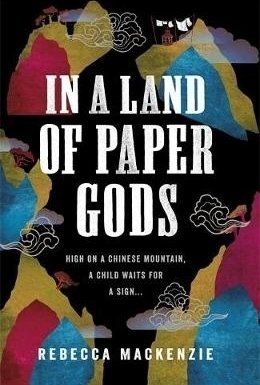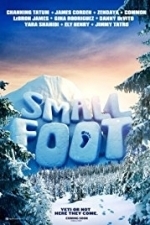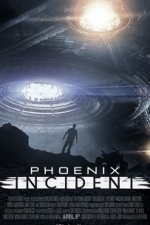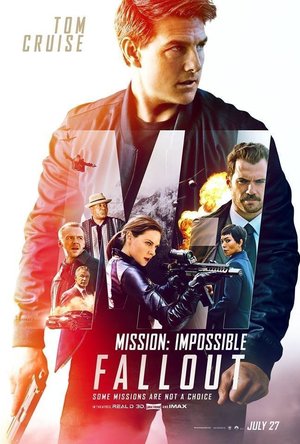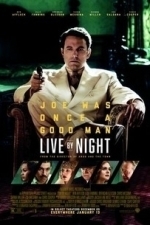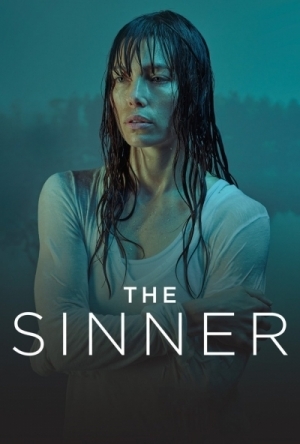Search
Search results
Hazel (1853 KP) rated In a Land of Paper Gods in Books
Dec 17, 2018
<i>I received this book for free through Goodreads First Reads.
“My name is Henrietta S. Robertson. That’s my English name… My Chinese name is Ming-Mei.”</i>
As the child of members of the Interior Alliance Mission, Henrietta has grown up between two cultures: English and Chinese. From the age of six she was sent to boarding school on a mountain in the Jiangxi Province, where four years later she remains as a small, pale, lonely girl.
For a girl as young as ten, Etta has a big imagination. She decides that God has called her to be a prophetess, and encourages the other girls in Dormitory A to join her in a Prophetess Club. This results is Etta getting into all sorts of trouble as she naively goes about inventing prophecies; all the while the Second Sino-Japanese War gets closer and closer to their mountain sanctuary.
Told mostly from Etta’s point of view, <i>In a Land of Paper Gods</i> is a hilarious historical novel about a young girl’s innocence. A large part of the story is about the missionary school rather than the ongoing war, therefore the focus is on Etta’s interpretation of the bible and her understanding of the differences between Western Christian and Chinese culture. However, once America joins the war effort, it is shockingly quick how the tale can go from humorous to heartbreaking.
The other character who plays a large part in this novel is Muriel, a dorm aunty, whom Etta regards highly. Muriel wanted to be a missionary but instead has found herself working at the Lushan school, keeping an eye on the ten and eleven year old girls. Although most of the book is written in Etta’s first person narrative, Rebecca Mackenzie has also included the occasional diary entry from Aunty Muriel. Since these are so few, it is not clear what their purpose is, as the story could easily continue without them.
Despite being an historical novel, <i>In a Land of Paper Gods </i>focuses less on fact and more on the impact the times had on a young girl. It is interesting to see the character development of Etta as she goes from a naughty, attention-seeking schoolgirl, to a young woman who must fend for herself. All the while she has her belief in God to resort to for explanations about the world she is living in. The reader also witnesses the growth of a relationship between Aunty Muriel and Etta. To begin with it is that of an adult and child, however it ends with them being equals in their suffering.
<i>In a Land of Paper Gods</i> is a pleasure to read. It is comically entertaining to begin with as the reader grows to love the characters, particularly mischievous Etta. It is hard to put the book down due to pure delight of the storyline, yet when the story turns darker it is just as difficult to put down, as we want to find out if the characters are going to be okay.
For some people, the Christian content will not mean anything, however it is possible to enjoy the novel without a religious background. For those, like myself, who do have a Christian upbringing, this aspect makes the story even better. Readers may recognize themselves or of their childhood in Etta, particularly her understanding of the bible.
Overall I loved this book. I was not sure what to expect, and have often found historical novels set in China to be rather dull. Therefore I was pleasantly surprised to discover how good this book was. I encourage others to read <i>In a Land of Paper Gods</i>, and I look forward to reading what Mackenzie writes next.
“My name is Henrietta S. Robertson. That’s my English name… My Chinese name is Ming-Mei.”</i>
As the child of members of the Interior Alliance Mission, Henrietta has grown up between two cultures: English and Chinese. From the age of six she was sent to boarding school on a mountain in the Jiangxi Province, where four years later she remains as a small, pale, lonely girl.
For a girl as young as ten, Etta has a big imagination. She decides that God has called her to be a prophetess, and encourages the other girls in Dormitory A to join her in a Prophetess Club. This results is Etta getting into all sorts of trouble as she naively goes about inventing prophecies; all the while the Second Sino-Japanese War gets closer and closer to their mountain sanctuary.
Told mostly from Etta’s point of view, <i>In a Land of Paper Gods</i> is a hilarious historical novel about a young girl’s innocence. A large part of the story is about the missionary school rather than the ongoing war, therefore the focus is on Etta’s interpretation of the bible and her understanding of the differences between Western Christian and Chinese culture. However, once America joins the war effort, it is shockingly quick how the tale can go from humorous to heartbreaking.
The other character who plays a large part in this novel is Muriel, a dorm aunty, whom Etta regards highly. Muriel wanted to be a missionary but instead has found herself working at the Lushan school, keeping an eye on the ten and eleven year old girls. Although most of the book is written in Etta’s first person narrative, Rebecca Mackenzie has also included the occasional diary entry from Aunty Muriel. Since these are so few, it is not clear what their purpose is, as the story could easily continue without them.
Despite being an historical novel, <i>In a Land of Paper Gods </i>focuses less on fact and more on the impact the times had on a young girl. It is interesting to see the character development of Etta as she goes from a naughty, attention-seeking schoolgirl, to a young woman who must fend for herself. All the while she has her belief in God to resort to for explanations about the world she is living in. The reader also witnesses the growth of a relationship between Aunty Muriel and Etta. To begin with it is that of an adult and child, however it ends with them being equals in their suffering.
<i>In a Land of Paper Gods</i> is a pleasure to read. It is comically entertaining to begin with as the reader grows to love the characters, particularly mischievous Etta. It is hard to put the book down due to pure delight of the storyline, yet when the story turns darker it is just as difficult to put down, as we want to find out if the characters are going to be okay.
For some people, the Christian content will not mean anything, however it is possible to enjoy the novel without a religious background. For those, like myself, who do have a Christian upbringing, this aspect makes the story even better. Readers may recognize themselves or of their childhood in Etta, particularly her understanding of the bible.
Overall I loved this book. I was not sure what to expect, and have often found historical novels set in China to be rather dull. Therefore I was pleasantly surprised to discover how good this book was. I encourage others to read <i>In a Land of Paper Gods</i>, and I look forward to reading what Mackenzie writes next.
Gareth von Kallenbach (980 KP) rated Smallfoot (2018) in Movies
Jul 2, 2019
The movie features Channing Tatum as Migo, James Corden as Percy,
Zendaya as Meechee, Common as Stonekeeper, LeBron James and Gwangi and
Danny DeVito and Dorgie, Migos father.
The movie is centered around a group of characters (the Yeti) and the
rules that surround their existence and are literally “set in stone” ,
carried around by (and, one surmises, enforced by) the Stonekeeper.
If it isn’t in the Stones, it just isn’t so.
Conversely, if it IS in the stones, it MUST be so, even if your eyes and
experiences tell you differently.
Each member of the village has a job, and even though the jobs are
monotonously repetitive, and even though at the bottom of it all, they
don’t really know the “why” behind what they are doing, all the Yeti
happily go about their days and participate to make the village run
smoothly.
Until, that is, Migo sees and chases down an airplane that crash lands
into their mountaintop sanctuary. There are legends of Smallfoot in the
Yeti’s folklore, but the stones emphatically state that Smallfoot do NOT
exist.
Migo brings his exciting news of the Smallfoot sighting back to the
village, only to be met by the Stonekeeper questioning whether Migo
could have ACTUALLY seen a Smallfoot, since the stones say they do not
exist. Migo does not let go of his story of seeing the Smallfoot, and is
subsequently banished from the village until he can “see the truth”.
(Maybe he REALLY saw a new breed of Yak!)
Migo leaves the village not knowing where his path should take him now,
and is intercepted by the members of the SES (Smallfoot Evidentiary
Society) who tell him that they believe him and show him the reasons
why, as backed by evidence that they have found over the years.
The three members of the SES are Meechee (Zendaya), who happens to be
the Stonekeepers daughter (!!), Kolka (Gina Rodriguez), Gwangi (LeBron
James), and Fleem (Ely Henry). The four encourage Migo to follow his
curiosity to find the Smallfoot and see what he can find out about them.
With trepidation, Migo heads down the mountain to see what he can find.
Once he has made his way down the mountain, Migo meets a videographer
named Percy, who has been lamenting his recent dismal ratings and lack
of viewers. Percy was going to go so far as to fabricate a story to get
“hits” online and to make a story go viral. Meeting Migo changes all
that and what follows is a heartwarming story about overcoming
differences, learning how to communicate, friendship & sacrifice.
The movie is colorful, and has great, catchy songs. The characters are
funny, there are lots of jokes, and I didn’t feel like there was any
“dead space” in the movie. The story was easy to follow but not boring.
I wouldn’t be surprised to hear about some sort of outcry raised by a
certain segment of the population, saying that the movie is
“anti-religious”, but I found it entirely refreshing for a kids movie to
send the message of not believing something someone tells you just
because “they say so” or just because “that’s the way its always been”,
or even “we do it this way for your own good (because you can’t be
trusted to think for yourself)” . Critical thinking skills are highly
lacking in today’s society, and I think that this movie is a great
example of finding out the truth by asking questions and not just
blindly following where you are told to.
My 10 year old son loved the movie, and I would go see it again in the
theatre, just to watch it again!
Zendaya as Meechee, Common as Stonekeeper, LeBron James and Gwangi and
Danny DeVito and Dorgie, Migos father.
The movie is centered around a group of characters (the Yeti) and the
rules that surround their existence and are literally “set in stone” ,
carried around by (and, one surmises, enforced by) the Stonekeeper.
If it isn’t in the Stones, it just isn’t so.
Conversely, if it IS in the stones, it MUST be so, even if your eyes and
experiences tell you differently.
Each member of the village has a job, and even though the jobs are
monotonously repetitive, and even though at the bottom of it all, they
don’t really know the “why” behind what they are doing, all the Yeti
happily go about their days and participate to make the village run
smoothly.
Until, that is, Migo sees and chases down an airplane that crash lands
into their mountaintop sanctuary. There are legends of Smallfoot in the
Yeti’s folklore, but the stones emphatically state that Smallfoot do NOT
exist.
Migo brings his exciting news of the Smallfoot sighting back to the
village, only to be met by the Stonekeeper questioning whether Migo
could have ACTUALLY seen a Smallfoot, since the stones say they do not
exist. Migo does not let go of his story of seeing the Smallfoot, and is
subsequently banished from the village until he can “see the truth”.
(Maybe he REALLY saw a new breed of Yak!)
Migo leaves the village not knowing where his path should take him now,
and is intercepted by the members of the SES (Smallfoot Evidentiary
Society) who tell him that they believe him and show him the reasons
why, as backed by evidence that they have found over the years.
The three members of the SES are Meechee (Zendaya), who happens to be
the Stonekeepers daughter (!!), Kolka (Gina Rodriguez), Gwangi (LeBron
James), and Fleem (Ely Henry). The four encourage Migo to follow his
curiosity to find the Smallfoot and see what he can find out about them.
With trepidation, Migo heads down the mountain to see what he can find.
Once he has made his way down the mountain, Migo meets a videographer
named Percy, who has been lamenting his recent dismal ratings and lack
of viewers. Percy was going to go so far as to fabricate a story to get
“hits” online and to make a story go viral. Meeting Migo changes all
that and what follows is a heartwarming story about overcoming
differences, learning how to communicate, friendship & sacrifice.
The movie is colorful, and has great, catchy songs. The characters are
funny, there are lots of jokes, and I didn’t feel like there was any
“dead space” in the movie. The story was easy to follow but not boring.
I wouldn’t be surprised to hear about some sort of outcry raised by a
certain segment of the population, saying that the movie is
“anti-religious”, but I found it entirely refreshing for a kids movie to
send the message of not believing something someone tells you just
because “they say so” or just because “that’s the way its always been”,
or even “we do it this way for your own good (because you can’t be
trusted to think for yourself)” . Critical thinking skills are highly
lacking in today’s society, and I think that this movie is a great
example of finding out the truth by asking questions and not just
blindly following where you are told to.
My 10 year old son loved the movie, and I would go see it again in the
theatre, just to watch it again!
Gareth von Kallenbach (980 KP) rated Phoenix Incident (2016) in Movies
Aug 6, 2019
Today’s selection, for your consideration, is another movie from the ‘found footage’ genre. I know I know. I’ve said it before and I’ll say it again … ‘The Blair Witch Project’ pretty much broke ground and played out that genre in the timespan of a single film. Hear me out though, cause the folks responsible for today’s selection tapped into the world of science fiction and ufos (and somewhat of a larger budget) to make this movie and the result is I believe a movie worthy enough to add to the selection of your Friday/Saturday night scary movie marathon. I’d even give it B-Movie/Cult Film status.
‘The Phoenix Incident’ is a documentary/sci-fi/thriller written and directed by Keith Arem and stars Yuri Lowenthal, Travis Willingham, Jamie Tisdale, Liam O’Brian, James C. Burns, Troy Baker, and Michael Adamthwaite. Based on the infamous ‘Phoenix Lights’ ufo incident which occurred on Thursday, March 13th 1997, the film merges the fictional disappearance of four local men and a military conspiracy with the factual account of thousands of people seeing what was described as a squadron or fleet of ufos seen traveling from the Nevada state line all the way to Phoenix, Arizona and later as far south as Mexico. The whole event was later attributed to a series of flares deployed as part of a trading exercise by A-10 Warthogs of U.S. National Guard (accounts vary by reports made by various media, law enforcement, and military outlets).
After overcoming a brief car accident outside of town and a brief but hostile encounter with a local religious fanatic, four of the five friends take off on their ATVs for an afternoon in the desert terrain surrounding Phoenix. As the friends are traversing the terrain and recording live video of their afternoon they suddenly spot a huge military presence consisting of warplanes, troop carriers, and attack helicopters racing into the desert at high speed. Intrigued and perhaps far too curious, the group of friends decide to try and follow the aircraft further into the desert as seen through their own camera footage. Darkness soon falls and the men become witnesses themselves to the mass UFO incident occurring over their town. Soon after though, their outing descends into absolute chaos as they become witnesses to something else. Something horrifying that will lead them into the unknown where their ultimate fate will become a mystery all its own. Included with the footage of the group are interviews with family and friends of the four missing men as well as interviews with law enforcement officials who each have different theories on what happened to the four friends. Intertwined with this footage is the account of the military exercises the men witnessed by an anonymous Air Force officer and his knowledge as to what REALLY happened to the four men that evening.
For a film made on less than a million dollars, I give this one major props. It’s definitely falls into the X-Files niche only without Mulder and Scully. I’m wondering if the filmmakers weren’t fans of ‘Unsolved Mysteries’ back in the day when Robert Stack hosted cause it has a similar bone-chilling aspect too it at some points. They didn’t CGI the hell out of the special effects either which I think is a real issue today in film and television. The acting ‘doesn’t look like acting’ either. The majority of ‘footage’ genuinely looks like a bunch of friends that start off spending the day goofing off and hanging out only to have their fun filled afternoon descend into utter hell.
I’ll give this one 3 out of 5 stars. Definitely worth the money for the digital download. Watch during sunset or at night to enhance the ‘thrill factor’ and checkout the bonus features included with the film as well. You’re liable to get caught up in it though and forget it’s fiction.
Or is it?
‘The Phoenix Incident’ is a documentary/sci-fi/thriller written and directed by Keith Arem and stars Yuri Lowenthal, Travis Willingham, Jamie Tisdale, Liam O’Brian, James C. Burns, Troy Baker, and Michael Adamthwaite. Based on the infamous ‘Phoenix Lights’ ufo incident which occurred on Thursday, March 13th 1997, the film merges the fictional disappearance of four local men and a military conspiracy with the factual account of thousands of people seeing what was described as a squadron or fleet of ufos seen traveling from the Nevada state line all the way to Phoenix, Arizona and later as far south as Mexico. The whole event was later attributed to a series of flares deployed as part of a trading exercise by A-10 Warthogs of U.S. National Guard (accounts vary by reports made by various media, law enforcement, and military outlets).
After overcoming a brief car accident outside of town and a brief but hostile encounter with a local religious fanatic, four of the five friends take off on their ATVs for an afternoon in the desert terrain surrounding Phoenix. As the friends are traversing the terrain and recording live video of their afternoon they suddenly spot a huge military presence consisting of warplanes, troop carriers, and attack helicopters racing into the desert at high speed. Intrigued and perhaps far too curious, the group of friends decide to try and follow the aircraft further into the desert as seen through their own camera footage. Darkness soon falls and the men become witnesses themselves to the mass UFO incident occurring over their town. Soon after though, their outing descends into absolute chaos as they become witnesses to something else. Something horrifying that will lead them into the unknown where their ultimate fate will become a mystery all its own. Included with the footage of the group are interviews with family and friends of the four missing men as well as interviews with law enforcement officials who each have different theories on what happened to the four friends. Intertwined with this footage is the account of the military exercises the men witnessed by an anonymous Air Force officer and his knowledge as to what REALLY happened to the four men that evening.
For a film made on less than a million dollars, I give this one major props. It’s definitely falls into the X-Files niche only without Mulder and Scully. I’m wondering if the filmmakers weren’t fans of ‘Unsolved Mysteries’ back in the day when Robert Stack hosted cause it has a similar bone-chilling aspect too it at some points. They didn’t CGI the hell out of the special effects either which I think is a real issue today in film and television. The acting ‘doesn’t look like acting’ either. The majority of ‘footage’ genuinely looks like a bunch of friends that start off spending the day goofing off and hanging out only to have their fun filled afternoon descend into utter hell.
I’ll give this one 3 out of 5 stars. Definitely worth the money for the digital download. Watch during sunset or at night to enhance the ‘thrill factor’ and checkout the bonus features included with the film as well. You’re liable to get caught up in it though and forget it’s fiction.
Or is it?

ConceptIQ : Human Geography
Education and Games
App
Would you like to have fun, while testing your knowledge of Human Geography. Would you like to...

Audio Books by Audiobooks
Book and Entertainment
App
Wish you could read more but don’t have the time? You’ll love audiobooks! Audiobooks.com is the...

Kappboom - Cool Wallpapers & Background Wallpapers
Photo & Video and Social Networking
App
The #1 Ranked and Best Wallpapers app with over 200,000 beautiful and cool wallpapers at your...
Bob Mann (459 KP) rated Mission: Impossible - Fallout (2018) in Movies
Sep 28, 2021
Hunt on the edge… again.
2015’s “MI: Rogue Nation” was one of my favourite films of that year, so of all the summer blockbusters this was the one I was most looking forward to. Was I delighted? It’s a slightly qualified “YES!”.
The film neatly follows on from Rogue Nation with arch terrorist-in-need-of-a-razor Solomon Lane (Sean Harris) being extraordinarily renditioned (probably not a valid phrase!) between multiple countries who want to torture/punish him. But his followers – “The Apostles” – are still active and on the trail of plutonium that could devestate key sites, with religious centres being the top of the target list. Since Ethan Hunt (Tom Cruise) originally caught Lane, IMF Director Hunley (Alec Baldwin) despatches Hunt to intercept the plutonium.
But CIA director Erica Sloan (Angela Bassett) has no faith in the IMF, or trust that the organisation has not been infiltrated, and she insists that her ‘heavy’ August Walker (Henry Cavill) goes along for the ride. But they are not the only parties in play, for Isla Faust (Rebecca Ferguson) is also involved. But who is she working for?
What makes these films a cut above your average action adventure is the stunt work, with the knowledge that Cruise is at the centre of the action. In “Skyscraper” you KNOW Dwayne Johnson is standing on the ‘edge’ in front of a big green screen. Similarly here you KNOW Cruise is standing on the edge of the Tate Modern tower – probably without a safety line – as the camera goes 360 degrees around him. This makes all the difference to the adrenalin count.
There are some outstanding set pieces in the film, with extraordinarily spectacular shots from a ‘halo jump’ and a dramatic helicopter finale. But it is some of the smaller stuff that really impresses: a dramatic edge-of-the-seat car and motorbike chase through central Paris is one of the most impressive and terrifying things I’ve seen on film for many years; and Cruise’s literally bone-crunching run through London is also extremely exciting, with Simon Pegg adding good humour in his regular role of Benji. By the way, series regulars Ving Rhames, as Luther, and Michelle Monaghan, as Hunt’s ex-wife Julia, also make welcome returns but Jeremy Renner is missing this time.
Tom Cruise at 56 (he’s just 15 months younger than I am, damn it!) will eventually meet a Roger Moore-like Bond cliff when his Hunt role is no longer credible. But he’s not there yet! Rebecca Ferguson is again outstanding as Faust and as a newcomer in a similar role Vanessa Kirby (memorable as Princess Margaret in “The Crown”) impresses as the “White Widow” – someone with a familial link to a villain from the past!
Unusually, for a film series which has traditionally been kept fresh by changing directors and composers at each turn, Christopher McQuarrie (“Edge of Tomorrow“, “The Mummy“) returns following “Rogue Nation“, and he also writes the screenplay. The composing baton is handed over this time though to Lorne Balfe (“Churchill“, “Terminator: Genisys“) and for me this was a bit of a step down from the “Rogue Nation” soundtrack by Joe Kraemer which I really enjoyed.
Is it sufficiently fresh though? Let’s be clear here, I was enormously entertained throughout, and this should be near the top of your summer watch list. But it did ultimately feel at times a little like a light retread of “Rogue Nation“. Some of the stunts – notably the Paris and London scenes as above – were a step up for me, but there are some annoyances in McQuarrie’s script (see the spoiler section below the trailer), so for me the rating plateaus at the same as “Rogue Nation“.
The film neatly follows on from Rogue Nation with arch terrorist-in-need-of-a-razor Solomon Lane (Sean Harris) being extraordinarily renditioned (probably not a valid phrase!) between multiple countries who want to torture/punish him. But his followers – “The Apostles” – are still active and on the trail of plutonium that could devestate key sites, with religious centres being the top of the target list. Since Ethan Hunt (Tom Cruise) originally caught Lane, IMF Director Hunley (Alec Baldwin) despatches Hunt to intercept the plutonium.
But CIA director Erica Sloan (Angela Bassett) has no faith in the IMF, or trust that the organisation has not been infiltrated, and she insists that her ‘heavy’ August Walker (Henry Cavill) goes along for the ride. But they are not the only parties in play, for Isla Faust (Rebecca Ferguson) is also involved. But who is she working for?
What makes these films a cut above your average action adventure is the stunt work, with the knowledge that Cruise is at the centre of the action. In “Skyscraper” you KNOW Dwayne Johnson is standing on the ‘edge’ in front of a big green screen. Similarly here you KNOW Cruise is standing on the edge of the Tate Modern tower – probably without a safety line – as the camera goes 360 degrees around him. This makes all the difference to the adrenalin count.
There are some outstanding set pieces in the film, with extraordinarily spectacular shots from a ‘halo jump’ and a dramatic helicopter finale. But it is some of the smaller stuff that really impresses: a dramatic edge-of-the-seat car and motorbike chase through central Paris is one of the most impressive and terrifying things I’ve seen on film for many years; and Cruise’s literally bone-crunching run through London is also extremely exciting, with Simon Pegg adding good humour in his regular role of Benji. By the way, series regulars Ving Rhames, as Luther, and Michelle Monaghan, as Hunt’s ex-wife Julia, also make welcome returns but Jeremy Renner is missing this time.
Tom Cruise at 56 (he’s just 15 months younger than I am, damn it!) will eventually meet a Roger Moore-like Bond cliff when his Hunt role is no longer credible. But he’s not there yet! Rebecca Ferguson is again outstanding as Faust and as a newcomer in a similar role Vanessa Kirby (memorable as Princess Margaret in “The Crown”) impresses as the “White Widow” – someone with a familial link to a villain from the past!
Unusually, for a film series which has traditionally been kept fresh by changing directors and composers at each turn, Christopher McQuarrie (“Edge of Tomorrow“, “The Mummy“) returns following “Rogue Nation“, and he also writes the screenplay. The composing baton is handed over this time though to Lorne Balfe (“Churchill“, “Terminator: Genisys“) and for me this was a bit of a step down from the “Rogue Nation” soundtrack by Joe Kraemer which I really enjoyed.
Is it sufficiently fresh though? Let’s be clear here, I was enormously entertained throughout, and this should be near the top of your summer watch list. But it did ultimately feel at times a little like a light retread of “Rogue Nation“. Some of the stunts – notably the Paris and London scenes as above – were a step up for me, but there are some annoyances in McQuarrie’s script (see the spoiler section below the trailer), so for me the rating plateaus at the same as “Rogue Nation“.
Bob Mann (459 KP) rated Live By Night (2017) in Movies
Sep 29, 2021
“Sleep by day…”.
Ben Affleck’s new movie could best be described as “sprawling”. In both directing and writing the screenplay (based on a novel by Dennis Lehane), Affleck has aimed for a “Godfather” style gangster epic and missed: not missed by a country mile, but missed nonetheless.
Morally bankrupted by his experiences in the trenches, Joe Coughlin (Affleck) returns to Boston to pick and choose which social rules he wants to follow. Not sociopathic per se, as he has a strong personal code of conduct, but Coughlin turns to robbery walking a delicate path between the warring mob factions of the Irish community, led by Albert White (the excellent Robert Glenister from TV’s “Hustle”), and the Italian community, led by Maso Pescatore (Remo Girone). Trying to keep him out of jail is his father (“Harry Potter”’s Brendan Gleeson) who – usefully – is the Deputy Police Chief. Life gets complicated when he falls in love with White’s moll, Emma Gould (Sienna Miller). The scene is set for a drama stretching from Boston to the hot and steamy Everglades over a period of the next twenty years.
Although a watchable popcorn film, the choppy episodic nature of the movie is hugely frustrating, with no compelling story arc to glue all of the disparate parts together. The (often very violent) action scenes are very well done and exciting but as a viewer you don’t feel invested in a ‘journey’ from the beginning of the film to the (unsatisfactory) ending. In my experience it’s never a good sign when the writer considers it necessary to add a voiceover to the soundtrack, and here Affleck mutters truisms about his thoughts and motives that irritate more than illuminate.
The sheer volume of players in the piece (there are about three film’s worth in here) and the resulting minimal screen time given to each allows no time for character development. Unfortunately the result is that you really care very little about whether people live or die and big plot developments land as rather an “oh” than an “OH!”.
Affleck puts in a great turn as the autistic central character whose condition results in a cold, calculating demeanor and a complete lack of emotion reflecting on his face. Oh, hang on… no, wait a minute… sorry… I’ve got the wrong film…. I’m thinking about “The Accountant”. I don’t know whether he filmed these films in parallel. I generally enjoy Ben Affleck’s work (he was excellent in “The Town”) but for 95% of this film his part could have been completed by a burly extra with an Affleck mask on. In terms of acting range, his facial muscles barely get to a “2” on the scale. Given the double problem that he is barely credible as the “young man” returning mentally wounded from the trenches, then in my opinion he would have been better to have focused on the writing and directing and found a lead of the likes of an Andrew Garfield to fill Coughlin’s shoes.
That’s not to say there is not some good acting present in the rest of the cast’s all too brief supporting roles. Elle Fanning (“Trumbo”, “Maleficent”) in particular shines as the Southern belle Loretta Figgis: a religious zealot driving her police chief father (Chris Cooper, “The Bourne Identity”) to distraction. Cooper also delivers a star turn as the moral but pragmatic law-man.
Sienna Miller (“Foxcatcher”) delivers a passable Cork accent and does her best to develop some believable chemistry with the rock-like Affleck. Zoe Saldana (“Star Trek”) is equally effective as a Cuban humanitarian.
In summary, it’s sprawlingly watchable… but overall a disappointment, with Affleck over-reaching. One day we surely will get a gangster film the likes of another “Godfather”, “Goodfellas” or “Untouchables”. Although this has its moments, unfortunately it’s more towards the “Public Enemies” end of the genre spectrum.
Morally bankrupted by his experiences in the trenches, Joe Coughlin (Affleck) returns to Boston to pick and choose which social rules he wants to follow. Not sociopathic per se, as he has a strong personal code of conduct, but Coughlin turns to robbery walking a delicate path between the warring mob factions of the Irish community, led by Albert White (the excellent Robert Glenister from TV’s “Hustle”), and the Italian community, led by Maso Pescatore (Remo Girone). Trying to keep him out of jail is his father (“Harry Potter”’s Brendan Gleeson) who – usefully – is the Deputy Police Chief. Life gets complicated when he falls in love with White’s moll, Emma Gould (Sienna Miller). The scene is set for a drama stretching from Boston to the hot and steamy Everglades over a period of the next twenty years.
Although a watchable popcorn film, the choppy episodic nature of the movie is hugely frustrating, with no compelling story arc to glue all of the disparate parts together. The (often very violent) action scenes are very well done and exciting but as a viewer you don’t feel invested in a ‘journey’ from the beginning of the film to the (unsatisfactory) ending. In my experience it’s never a good sign when the writer considers it necessary to add a voiceover to the soundtrack, and here Affleck mutters truisms about his thoughts and motives that irritate more than illuminate.
The sheer volume of players in the piece (there are about three film’s worth in here) and the resulting minimal screen time given to each allows no time for character development. Unfortunately the result is that you really care very little about whether people live or die and big plot developments land as rather an “oh” than an “OH!”.
Affleck puts in a great turn as the autistic central character whose condition results in a cold, calculating demeanor and a complete lack of emotion reflecting on his face. Oh, hang on… no, wait a minute… sorry… I’ve got the wrong film…. I’m thinking about “The Accountant”. I don’t know whether he filmed these films in parallel. I generally enjoy Ben Affleck’s work (he was excellent in “The Town”) but for 95% of this film his part could have been completed by a burly extra with an Affleck mask on. In terms of acting range, his facial muscles barely get to a “2” on the scale. Given the double problem that he is barely credible as the “young man” returning mentally wounded from the trenches, then in my opinion he would have been better to have focused on the writing and directing and found a lead of the likes of an Andrew Garfield to fill Coughlin’s shoes.
That’s not to say there is not some good acting present in the rest of the cast’s all too brief supporting roles. Elle Fanning (“Trumbo”, “Maleficent”) in particular shines as the Southern belle Loretta Figgis: a religious zealot driving her police chief father (Chris Cooper, “The Bourne Identity”) to distraction. Cooper also delivers a star turn as the moral but pragmatic law-man.
Sienna Miller (“Foxcatcher”) delivers a passable Cork accent and does her best to develop some believable chemistry with the rock-like Affleck. Zoe Saldana (“Star Trek”) is equally effective as a Cuban humanitarian.
In summary, it’s sprawlingly watchable… but overall a disappointment, with Affleck over-reaching. One day we surely will get a gangster film the likes of another “Godfather”, “Goodfellas” or “Untouchables”. Although this has its moments, unfortunately it’s more towards the “Public Enemies” end of the genre spectrum.
Daniel Boyd (1066 KP) rated The Sinner - Season 1 in TV
Nov 30, 2017 (Updated Nov 30, 2017)
Barely any of the characters were sympathetic or relatable (3 more)
The ending was dissatisfying
So many wasted episodes
It was only 9 episodes long, but it felt far longer
A Sin That This Wasn't Better
This show came highly recommended to me by sources that I usually trust, but it turned out to be a total let down. The show opens with a young family going to the beach. The mother who is played by Jessica Biel, suddenly walks over to another young man on the beach and stabs him to death in front of over a hundred witnesses in broad daylight. She is then arrested and the show spends the next 8 episodes clumsily trying to explain why she committed this heinous act.
I like Jessica Biel, I like Bill Pullman and I like Christopher Abbott, who plays the husband to Biel's Cora Tannetti. I like mysterious shows about crime and murder. I should have loved this, but I thought it was a train wreck from start to finish. During the first episode we see the murder occur in graphic detail, then the next couple of episodes ask why she did what she did and then you start to wonder, "how are they going to manage to drag this out for another six episodes without it getting stale?" The answer is, they aren't and it gets old fast. In this sense, the writing is a mess.
Sometimes though, a show can have messy writing, but be saved by it's cast of characters. However, that is absolutely not the case here. Cora is the main character of the show, so I think we are supposed to feel some sort of connection to her, yet she is so grossly off-putting in every way, I was actually was hoping to see her get the death sentence. At first you see her committing this atrocity, which obviously causes you to take an instant dislike to her, but you expect as the show goes on and we learn more about her, that we will eventually feel sympathetic towards her. In fact, the exact opposite is true, every new facet of information that I learned about her backstory just made me hate her more and at no point did I feel like I was on her side.
There is also a flashback subplot going on, which shows Cora as a suspiciously old looking teenager, as for some reason Jessica Biel is still playing the role of the teenage Cora. Through this we see her family life growing up, but her family are some of the most dislikeable characters I have seen in a TV show in years. Her mother is a religious nut to the point of insanity, her father is sleeping with the next door neighbour and her terminally ill sister is such a little shit that you don't feel any sympathy towards her for her illness and you end up hoping she will die sooner rather than later.
I'll try to discuss the ending without giving away any major spoilers, but for those who haven't yet seen the show, you may want to skip to the final paragraph. At around the episode 5 mark, I was very close to giving up on this show, but I had heard that the ending was amazing, so I stuck with it. What a waste of time that turned out to be. The reveal itself was a huge let down and after everything was revealed, I still felt that the murder victim didn't deserve to die and I thought that Cora pretty much getting away with murder was so dissatisfying and undeserved.
Overall, this show is pretty awful. There are so many plot threads that go nowhere, the writing thinks it is far more clever than it actually is, actors that I normally like are playing entirely dislikeable characters and the whole thing seems far longer than just nine episodes. The ending isn't worth sticking around for and really the show is just tons of wasted potential. Do yourself a favour and give this a skip, there are far better shows available to watch on Netflix.
I like Jessica Biel, I like Bill Pullman and I like Christopher Abbott, who plays the husband to Biel's Cora Tannetti. I like mysterious shows about crime and murder. I should have loved this, but I thought it was a train wreck from start to finish. During the first episode we see the murder occur in graphic detail, then the next couple of episodes ask why she did what she did and then you start to wonder, "how are they going to manage to drag this out for another six episodes without it getting stale?" The answer is, they aren't and it gets old fast. In this sense, the writing is a mess.
Sometimes though, a show can have messy writing, but be saved by it's cast of characters. However, that is absolutely not the case here. Cora is the main character of the show, so I think we are supposed to feel some sort of connection to her, yet she is so grossly off-putting in every way, I was actually was hoping to see her get the death sentence. At first you see her committing this atrocity, which obviously causes you to take an instant dislike to her, but you expect as the show goes on and we learn more about her, that we will eventually feel sympathetic towards her. In fact, the exact opposite is true, every new facet of information that I learned about her backstory just made me hate her more and at no point did I feel like I was on her side.
There is also a flashback subplot going on, which shows Cora as a suspiciously old looking teenager, as for some reason Jessica Biel is still playing the role of the teenage Cora. Through this we see her family life growing up, but her family are some of the most dislikeable characters I have seen in a TV show in years. Her mother is a religious nut to the point of insanity, her father is sleeping with the next door neighbour and her terminally ill sister is such a little shit that you don't feel any sympathy towards her for her illness and you end up hoping she will die sooner rather than later.
I'll try to discuss the ending without giving away any major spoilers, but for those who haven't yet seen the show, you may want to skip to the final paragraph. At around the episode 5 mark, I was very close to giving up on this show, but I had heard that the ending was amazing, so I stuck with it. What a waste of time that turned out to be. The reveal itself was a huge let down and after everything was revealed, I still felt that the murder victim didn't deserve to die and I thought that Cora pretty much getting away with murder was so dissatisfying and undeserved.
Overall, this show is pretty awful. There are so many plot threads that go nowhere, the writing thinks it is far more clever than it actually is, actors that I normally like are playing entirely dislikeable characters and the whole thing seems far longer than just nine episodes. The ending isn't worth sticking around for and really the show is just tons of wasted potential. Do yourself a favour and give this a skip, there are far better shows available to watch on Netflix.
